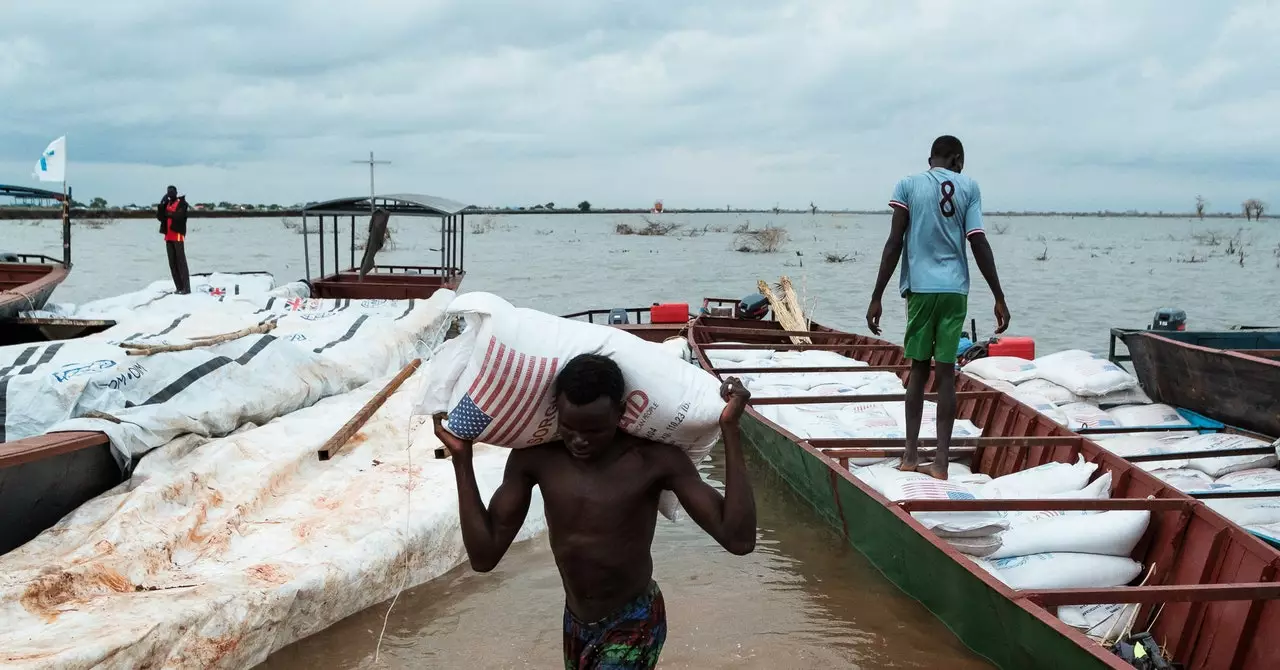Fews Net (Famine Early Warning Systems Network) plays a pivotal role in monitoring global food security and assessing humanitarian crises, addressing a multitude of contributing factors. Recently, discussions surrounding potential funding cuts to Fews Net have raised concerns about the future effectiveness of this vital program. According to Chemonics spokesperson Payal Chandiramani, there are efforts to ensure that Fews Net qualifies for continued support from USAID, which underscores the program’s immense significance in the humanitarian assistance framework.
Fews Net stands out due to its comprehensive analysis, which includes an array of both primary and secondary indicators to forecast food scarcity. While many acknowledge the direct impacts of droughts and poor grain stocks, Fews Net takes this a step further by integrating less obvious variables, such as the threat posed by locust swarms. These grasshoppers can devastate crops, leading to dire food shortages, particularly in vulnerable regions like Africa. To meet these challenges head-on, Fews Net employs advanced satellite imagery tools designed to track potential locust breeding grounds and predict swarming events.
The Integration of Technology and Historical Context
Historically, Fews Net emerged as a strategic initiative during the Cold War, designed to support U.S. foreign policy objectives while also addressing humanitarian needs. As historian Christian Ruth notes, despite its altruistic façade, the program is inherently linked to American interests. The intertwining of food security and national stability endows Fews Net with a substantial scope that goes beyond mere humanitarian assistance.
In its analytical approach, Fews Net employs advanced artificial intelligence to gauge the likelihood of political unrest, thereby preemptively addressing issues related to famine. This analytical depth ensures that the decisions surrounding humanitarian aid allocation are informed by reliable data, which is crucial for effective resource expenditure. Former Fews Net leader, Laura Glaeser, emphasized this point, calling Fews Net the “standard bearer” in humanitarian analysis, vital for maximizing the impact of aid initiatives.
The looming threat of funding cuts not only threatens the operational capacity of Fews Net but also casts a long shadow over U.S. foreign policy. Glaeser warns that undermining this program directly undermines the ability of the U.S. government to make informed decisions about taxpayer resources. Each financial reduction reverberates through the systems that monitor areas at risk of famine and migration, thus hamstringing the U.S. response to international crises.
Amidst rising tensions associated with border security, especially during the Trump administration, the importance of preemptive measures—such as those offered by Fews Net—cannot be overstated. Program cuts could lead to a lack of early warning signals, which might inadvertently push communities toward migration, generating crises that further complicate U.S. immigration issues.
The link between food security and geopolitical stability is evident in various historical contexts. Dave Harden, a former assistant USAID administrator, highlights the Syrian drought of the 2010s, which triggered mass migrations and civil unrest. Failure to address underlying food security issues can reverberate through the political landscape, causing instability that trickles down to affect not only the regions directly involved but also the U.S. and other countries experiencing waves of migration.
Fews Net’s analysis previously extended to Central America and the Caribbean, where food scarcity has historically fueled unrest. By maintaining support for programs like Fews Net, the U.S. could cultivate a proactive strategy that addresses root causes of migration rather than merely reacting to its symptoms.
The continued operation of Fews Net is essential not only for humanitarian reasons but also as a strategic asset for U.S. foreign policy. As debates about funding and support for the program unfold, it is crucial for policymakers to recognize the complex and interconnected systems at play. Such an understanding will guide a more effective approach to addressing food insecurity, political unrest, and migration.
The potential ramifications of dismantling or underfunding initiatives like Fews Net can lead to a miscalculation that amplifies social and political crises both domestically and abroad. Keeping Fews Net intact will empower the U.S. government to bolster its commitments to global stability, foster humanitarian goals, and effectively utilize taxpayer dollars in pursuit of these objectives.

